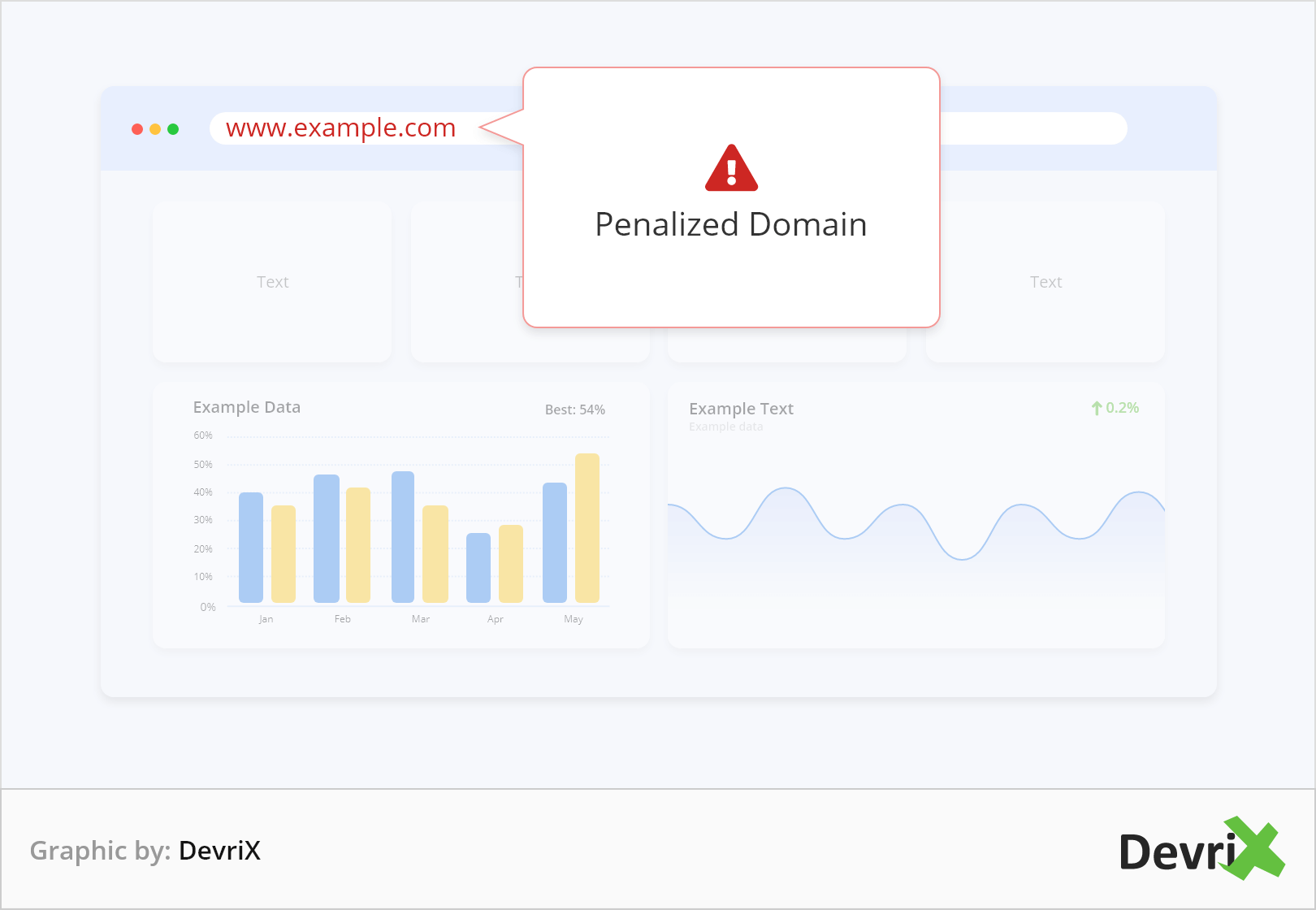When running a business, having a dependable website, and choosing a top-level domain is essential. However, the odds are good that when you registered your original domain you couldn’t choose the option you really wanted as it was already taken. There are times when you will need to acquire a new domain, maybe to target new business, rebrand, or maybe to get access to a stronger domain.
You may find over time that your initial domain name hasn’t evolved with your brand. Domain names are a key element of your website and are often the first thing potential customers will see when they look at your URL. Your domain name will also have an effect on your search engine ranking and your brand recognition.
A study conducted by DomainNameWire found that your domain can not only help your website rank better for specific keywords but also help you save on paid marketing. Marketing experts know that a good domain name is worth the cost and helps with customer retention. Some domain name types bear more trust and recognition than others with .com domains being the most expensive but also the most powerful.
Domain pricing can be highly dependent on the suffix used. On average, registering a brand new domain will cost up to $15 a year to create, depending on the domain source you are using. These costs will also vary depending on factors like auto-renew costs, privacy protection, and domain transferral.
This is how to recognize that you need a new domain and why it’s worth changing your existing one:
Penalization
The first and foremost reason to get a new domain is if your current domain has been penalized. Domain penalizations are caused by a variety of factors – perhaps you have bought links, duplicated content, had significant downtime, or taken another step that has caused your domain to be flagged.
If your domain has been hit with spam penalties or algorithmic penalties, it may be faster to pick up a new domain than to recover the plagued one. If your domain is found violating Google’s guidelines, your site can be penalized and your SERP rankings can decline drastically as a result, which can be timeous and resource-intensive to repair. Your chances of success are better when working with a completely fresh slate. Once a domain has been tarnished, there is really little you can do to recover it to its former glory.
These penalties are often outside of your control, like negative SEO attacks. Negative SEO refers to unethical techniques used to sabotage someone’s rankings in search engines. Dealing with negative SEO attacks can be particularly tricky.
Sometimes negative SEO attacks are launched by individuals with competing businesses, or for extortion purposes. These types of attacks are much more common than you would expect, and because these attacks don’t physically change your website it can take some time for you to realize that something is wrong.
These techniques result in penalties, either automatic or manual. You may receive notification of manual penalties, but not automatic ones. Penalties like these can take even the most experienced SEO professionals by surprise. If you suspect your website and domain have been penalized in some way, look out for some of these subtle clues: decreases in search engine rankings, removal of the site from cached results, and site searches no longer bring up your website.
Rebranding

When launching a new business that changes your direction completely, a new domain and website are definitely in order. If you were to keep your old domain, you may experience a high bounce rate as customers see your new website is not what they remembered it being. You may also be better off with a new domain if you didn’t have much traffic to begin with.
You may also consider purchasing a new domain if you are planning to launch multiple business ventures. It is not uncommon for businesses to have various domain names for their different products or services, especially if they need to build the brands for these services or products independently from the company name or brand. The key thing to remember is that domain name changes can cause businesses to falter if not handled the correct way.
7 Branding Strategies to Generate More Leads for Your Business
When launching a replacement domain, you’ll need to take certain steps such as redirecting your old domain to your new one, making sure customers know about the move, and that all your content and links are backed up.
Sometimes, business owners will use their old domain to provide the new one with more credibility and SEO capabilities. Others will wait until traffic to the old domain has decreased enough and then put the domain up for sale. There are multiple reasons to consider selling your old domain name. If the domain is of high quality, for example, the sale price thereof could be of more value to you than the actual ownership of the domain. The money received from the sale of the old domain can also contribute to the purchase and maintenance of the new one.
Not every rebrand involves getting a new domain name of course, but if a new website is required changing domains is suggested. Your domain name ideally needs to reflect your business, so if your business is changing your domain should be realigned with your new goals.
The Basic Elements of Branding and Identity Design of a Product
Get a Stronger Domain Name
If you have the opportunity to gain a more authoritative domain in your niche, it’s worth switching for the added traffic that will come with it. Domain names are very competitive – you may not have been able to secure the domain name you wanted previously, but after some time in business the opportunity to buy it may become available. Before taking on this new domain name, you want to do preliminary legal screens to make sure the name can be trademarked.
Research from the company Domain Name Stat indicates that over 40% of domains on the internet are .com domains. This extension remains the best option you can go with, closely followed by the .net and .org extensions. Many search engines give preference to well-established domain suffixes, and the majority of customers are more likely to enter a .com suffix when searching up URLs.
It’s also important to ensure that the new domain corresponds with naming on other platforms like the social media handles of your business. Pre-owned or expired domain names can have a big impact on your SEO so proceed with caution. The older a domain is, the more trust it will hold with the public. If you’re considering this option, you’ll want to research the domain name authority, any prior copyrights or trademarks and whether it will suit your niche.
When to Keep Your Existing Domain
Changing your domain is not something to be done lightly – your reasons for changing it should be carefully considered. If your business is already established, changing your domain could affect your brand recognizability, your traffic rates, and the number of leads you get to pursue. You’ll need to think carefully about whether this is the right step for you to take to grow your business.
Initially, when changing your domain, your traffic will be severely affected. You’ll need to target a lot of your efforts toward increasing this traffic by bettering your SEO, marketing your new website, and taking other steps to getting it out there in the public eye.
After changing your domain, Google needs to relearn and reindex your site from scratch. You can prompt this indexing by using the Google Search Console to submit the new URL and clicking the “Request Indexing” button.
The domain age also plays a factor in SEO ranking – a domain over 5 years old will have an edge over domains that are less than a year old. While not all of the ranking factors that search engines make use of are known, we have some good ideas about what is important for domains to have.
Apart from the domain age, keyword use, registration length, domain history, and domain suffixes all play a big part in how domains are ranked by Google in particular. If your existing domain has scored well on all these different aspects, a new domain may not offer you as many benefits as you would think.
There are decided benefits to changing your domain name over the long term if done for the right reasons. These reasons include shaking off a penalized domain, rebranding, or getting access to stronger domain names. With the right domain and domain suffix, it’s possible for businesses to reach higher potential via their websites, albeit after some time. Changing your domain is a long-game – a lot of effort at the beginning could lead to a bigger pay off at a later date.
Even with these benefits, there can be challenges to contend with too. For business owners considering making the change, it’s about weighing the pros vs cons, and bearing in mind that a change of this nature will require some work to perfect.
Wrapping Up
Choosing the best domain name for your business can be particularly difficult, but if you are considering it make sure to keep these tips in mind. The best domain names are simple, relevant to the brand, contain useful keywords, and have a website with the same naming standards to name just a few examples.
The domain name you choose will be important to establishing the online credibility of your business with consumers. Having the right domain name in place can really give you the edge over your competition.
Companies like GoDaddy and NameCheap provide domain transfer services which can save businesses a lot of the time and effort that comes with changing your domain, but at a cost. It’s also important to carefully pre-vet these services and to ensure they are trustworthy and knowledgeable about the process.
If you’ve ended up with a domain name that does not bring all the benefits listed in this article, then you should consider changing it to something that has more authority. Just be sure to do your research beforehand.






